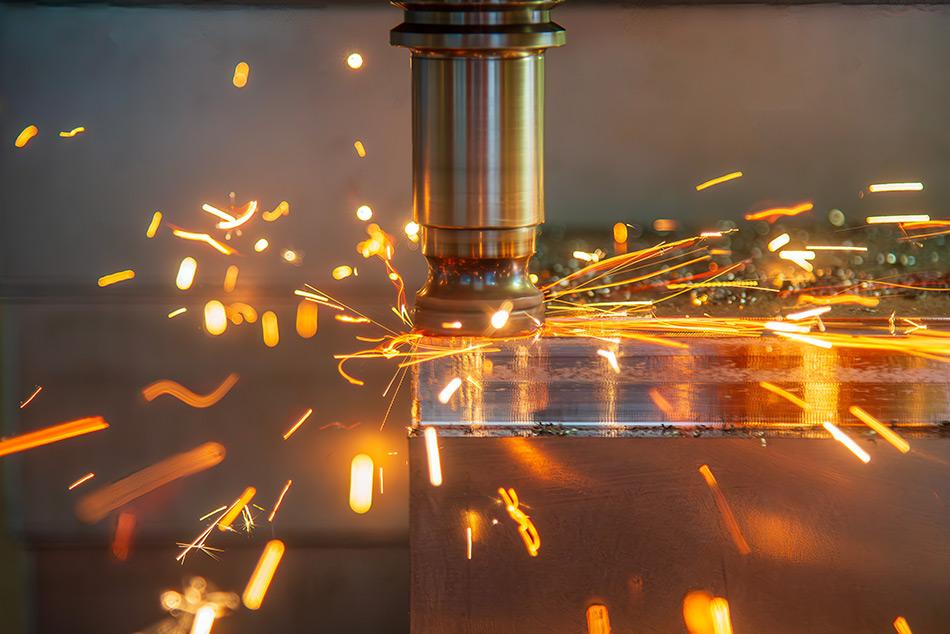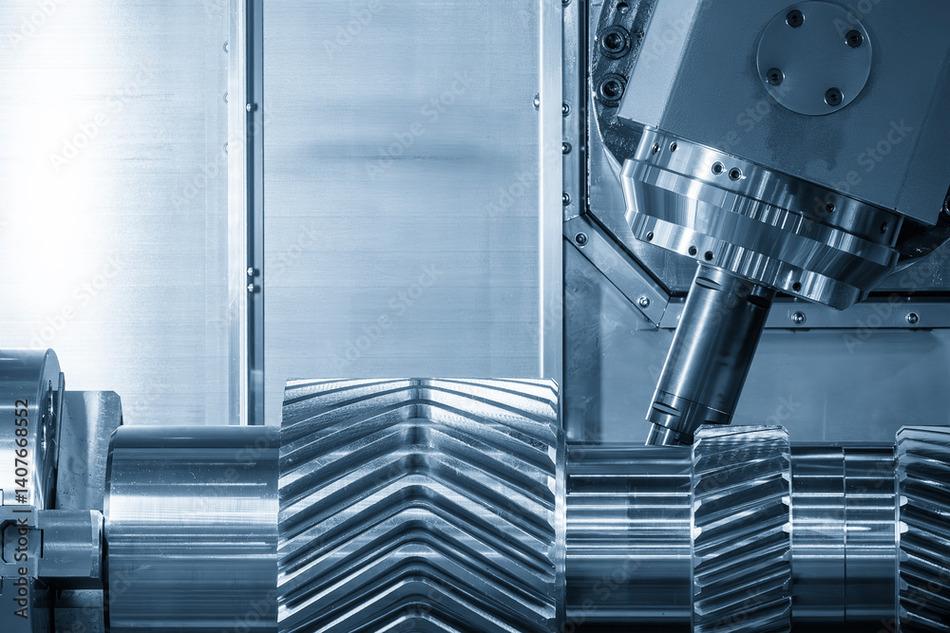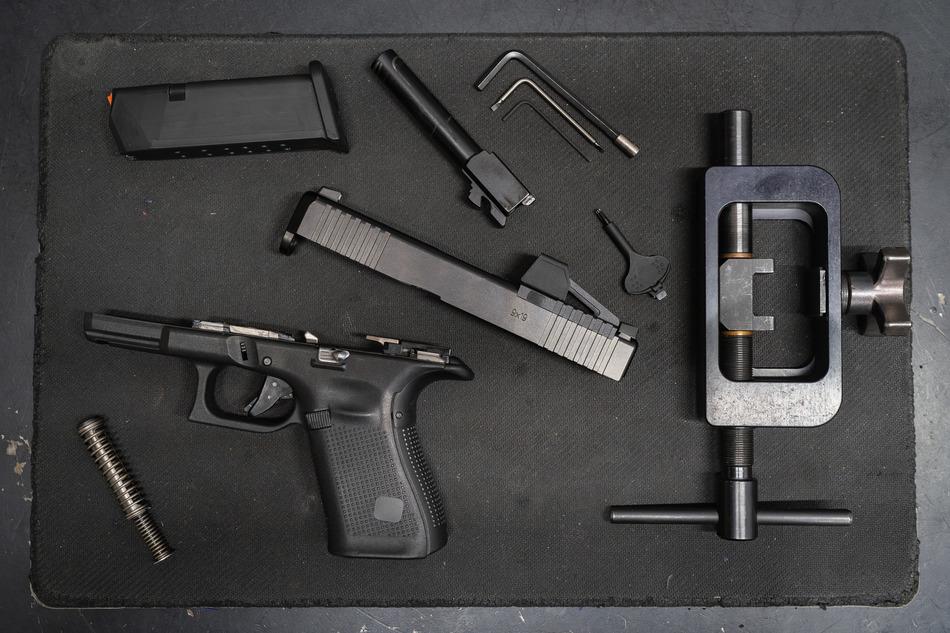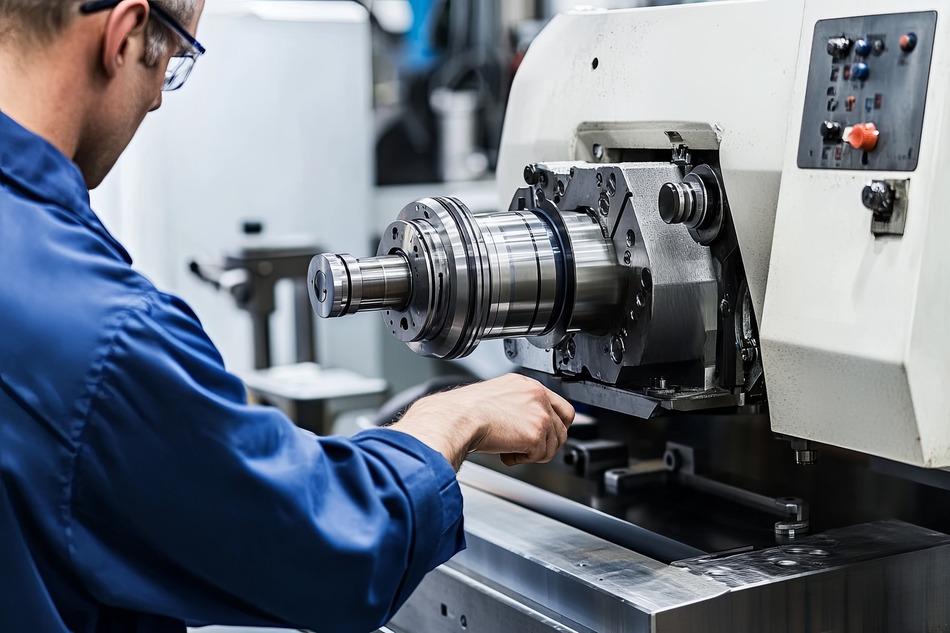Choosing the Best Materials for Your CNC Project
Selecting the best materials for your CNC machining project is critical to the outcome. The material you select will affect how well the machining process goes, how strong and durable the finished product is, and how efficiently the project can be completed. From strength and wear resistance to weight and cost, understanding the properties of different materials is crucial. This knowledge helps you make smart decisions that match your project’s needs.
Range of Materials for CNC Machining
CNC machining can use a wide range of materials, each of which has unique benefits for different applications. For example, aluminum is lightweight and versatile, stainless steel offers corrosion resistance and strength, and brass is ideal for components needing good electrical conductivity.
The material you choose impacts how easy it will be to machine the part and how well the final part will perform. Whether you need high strength, wear resistance, or chemical resistance, there are many material options to consider, including metallic materials like aluminum and titanium, as well as plastics like Nylon and PTFE.
How to Choose the Right CNC Machining Material
Choosing the best material for CNC machining means thinking about the properties of the material and what your project specifically needs. Here are some tips to help you make the right choice:
- Assess Mechanical Strength: Think about whether the material needs to handle high loads or stress, such as in automotive components like engine mounts or aerospace structural parts. Mild steel and stainless steel are good options when high mechanical strength is required.
- Consider Electrical Properties: If the part needs to conduct electricity, brass is often a good choice because of its electrical conductivity. It works well for electrical components and fittings.
- Evaluate Environmental Conditions: Will the part be exposed to harsh conditions, such as chemicals or high temperatures? If so, materials like stainless steel and PTFE are good choices because they are resistant to corrosion and chemicals.
- Heat Treatment Needs: Some projects may require parts that can be strengthened through heat treatment. Carbon steel and stainless steel can be heat-treated to improve hardness and durability.
How to Make the Best Material Choice for CNC Machining
Choosing the right material for your CNC machining project is all about balancing different factors like strength, weight, machinability, and resistance to the environment. By understanding the unique properties of different materials, you can make smart decisions that lead to a successful project. Whether you are working with common materials like aluminum and stainless steel or looking at more specialized options, the goal is to match the material to the needs of your project. Proper CNC machining material selection will ensure high quality, efficiency, and cost-effectiveness for your application.
Remember that the right material can make all the difference in the success of your project. Take the time to evaluate your options, think about what properties are most important, and choose a material that will meet all of your project’s needs. With the right material, your CNC machined parts will perform well and meet your expectations, no matter the application.
Factors to Consider for CNC Machining MaterialsWhat Factors Should You Consider When Choosing CNC Machining Materials?
- Strength and Durability
Strength is a key factor when selecting a material for CNC machining. Depending on your project, you might need a material that can withstand a lot of force or weight. For example:- Aluminum is lightweight but still strong enough for many uses, making it ideal for aerospace and automotive parts.
- Stainless Steel is very strong and resistant to rust and corrosion, making it great for medical equipment and food processing.
- Weight and Strength-to-Weight Ratio
In aerospace projects, the strength-to-weight ratio is crucial. Titanium is a popular choice because it has a high strength-to-weight ratio, meaning it is very strong without being too heavy. This is especially important when parts need to be strong but also light. The strength-to-weight ratio is a key consideration in CNC machining material selection because it helps make sure the material fits both the performance needs and weight requirements. - Machinability
Machinability refers to how easy or difficult it is to shape or cut a material using CNC machines. If the material is easy to machine, it will save time and reduce costs. Brass is well known for its ease of machining and can be cut with high precision and speed. On the other hand, titanium and stainless steel are harder to work with because they are tough, requiring slower cutting speeds and special tools. Material choice impacts CNC machining efficiency due to differences in machinability. - Environmental Resistance
The material’s ability to withstand different environmental conditions, such as exposure to extreme temperatures or moisture, is another important factor. For example:- Stainless Steel offers great resistance to corrosion, which makes it ideal for parts that will come into contact with moisture or chemicals.
- Plastics like PTFE (Teflon) are chemically resistant and are often used in environments where they will be exposed to chemicals. Additionally, materials must be wear resistant if they will be subject to friction or harsh conditions.
Machining Tools and Material Compatibility
When selecting a material, it is also important to think about how well it will work with the machining tools you are using. The hardness of the material affects the type of tools you need and how fast you can cut. For example, titanium and stainless steel are tough materials that require cutting tools with carbide tips to handle their hardness, while softer materials like aluminum can be cut with standard high-speed steel tools. Using the right combination of tools and materials will help you achieve the desired quality for CNC machined parts.
Common CNC Machining Materials
- Aluminum: Aluminum is lightweight, versatile, and easy to machine. It is commonly used in industries such as automotive, aerospace, and electronics because it offers a good balance of strength, cost, and machinability.
- Stainless Steel: Stainless steel is known for its strength, durability, and resistance to rust and corrosion, making it suitable for medical devices, food processing equipment, and hygienic applications.
- Brass: Brass is easy to machine and has great electrical conductivity, making it ideal for electrical components and fittings.
- Plastics: Plastics like Nylon and Delrin are lightweight and offer good chemical resistance, often used for parts that need electrical insulation.
- Mild Steel: Mild steel has good mechanical strength and low cost, making it a popular choice for many general applications. Material Selection Tips for Different
Applications
- Automotive and Aerospace: Aluminum and titanium are commonly used to balance weight and strength. Aluminum is lightweight with a good strength-to-weight ratio, while titanium offers high strength for critical lightweight components.
- Medical Devices: Stainless steel is commonly used due to its corrosion resistance, ease of cleaning, and high dimensional stability, making it ideal for precision medical parts that require both durability and hygienic properties, such as surgical instruments and implants.
- Prototyping: ABS plastic and aluminum are often used for prototypes because they are easy to machine and cost-effective. Delrin is also a good choice for high-precision prototypes due to its low friction, dimensional stability, and ease of machining.




